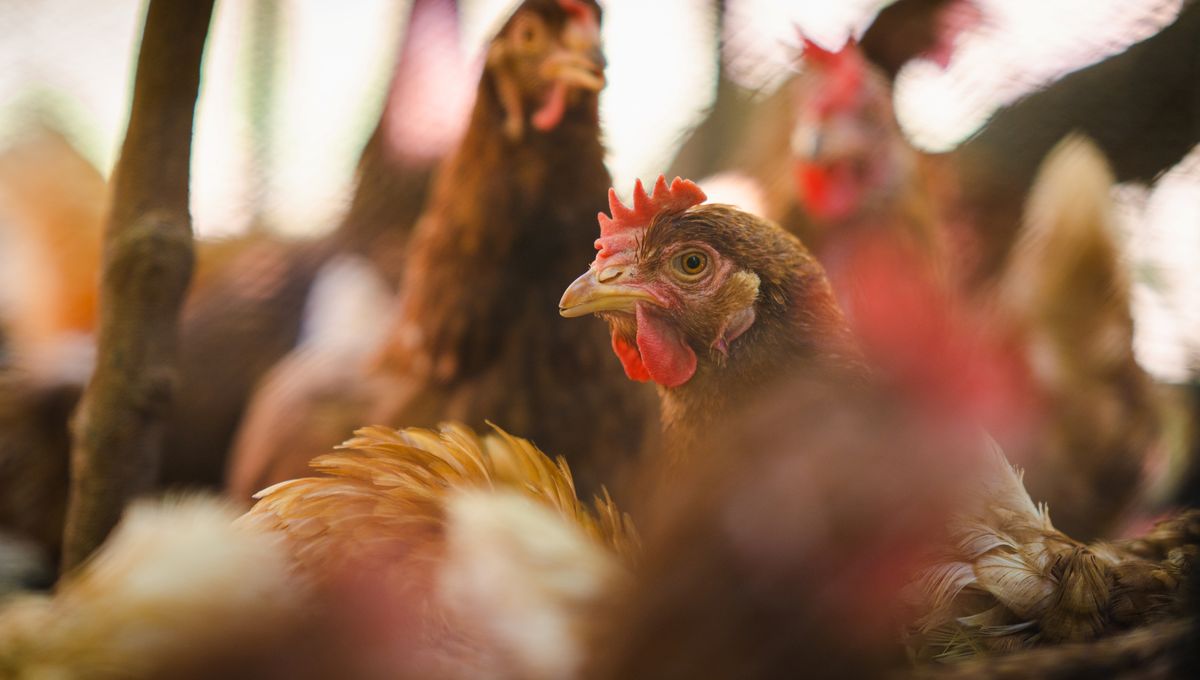
Earlier this year, US Health Secretary Robert F. Kennedy Jr made a controversial suggestion as to how to tackle the problem of H5N1 bird flu: consider letting it run through poultry farms. Multiple experts criticized the idea – but where do they stand nearly four months later, with bird flu having continued to spread in animals? Turns out, they still think it’s a terrible idea.
Writing in a new policy forum, a group of five experts ranging from veterinary medics to immunologists detailed their reasoning as to why letting the virus “run rampant”, as they described it, is far from a viable plan.
“This approach would be dangerous and unethical. Allowing a highly lethal, rapidly evolving, and contagious virus to run a natural course of infection in poultry would lead to unnecessary suffering of poultry and put other susceptible animals on and near affected farms at risk,” the authors state.
Kennedy’s reasoning for allowing bird flu to spread unmitigated, as an alternative to culling or vaccinating, is that it might allow us to identify and preserve only those birds with immunity to the virus.
Alongside unnecessary suffering, the authors point out that this plan would not only rapidly decrease the genetic diversity of poultry in the US – which might leave them more vulnerable in the event of future pathogens arising – but may also have another long-term impact.
“Such a ‘let-it-spread’ strategy may identify small numbers of poultry infected by H5 influenza virus that do not develop severe disease for unknown reasons; however, these birds could serve as a new longterm reservoir for the virus,” they explain.
This provides the opportunity for H5N1 to become “a better pathogen”.
“Although it is not possible to fully predict future virus behavior, evidence suggests that there should be more (not less) worry about lapses in containment,” the authors write. “When a virus is given opportunity to freely infect a host, it often evolves to be a more efficient pathogen in that species. Therefore, selecting for resistant birds in the manner proposed by Secretary Kennedy may also increase the chances of H5 evolving to be a better pathogen in poultry.”
As well as the risks to poultry and other animals, the authors point out that there are dangers to humans, too.
“It would prolong exposure for farmworkers, which could increase viral adaptation and transmission risks for poultry, other peridomestic animals, and humans.”
As of July 1, the US has seen 70 confirmed human cases of bird flu since 2025, 24 of which were the result of exposure on poultry farms and culling operations, and 41 after exposure from dairy cattle herds. One of the 70 people infected died – the first such case in the US – after what is thought to have been exposure to the virus in both a backyard flock and wild birds.
In three of the confirmed human cases, the exposure source was deemed unknown, which has led to some speculation that the virus had begun spreading between humans – something that doesn’t yet appear to have happened.
“To date, humans have served as dead-end hosts for H5; however, the threat of these viruses acquiring the necessary mutations to support efficient human-to-human transmission has been the focus of much speculation, preparedness planning, policy debate, and research,” they wrote.
Back in February, Dr Robert Murphy, executive director of the Robert J. Havey Institute for Global Health at Northwestern University, told IFLScience that the possibility of seeing the virus spread between humans is “very likely”, with research having identified changes in the virus that may make it easier for it to infect human cells.
Still, the experts note that “the mechanisms by which avian influenza viruses of various subtypes adapt to become more humanlike are not fixed in the number or order of specific mutations (or reassortment events). There are insufficient data to accurately predict risk factors for host adaptation.”
But that still doesn’t mean it’s a good idea to let bird flu run wild. “It has been observed that the more virus circulating, the more opportunity exists for adaptation,” the authors say. In other words, if we let the virus run free, it increases the chance that it may pick up mutations that allow for transmission between humans.
So, if a “let-it-spread” approach isn’t feasible, what kind of plan is?
“There is no evidence that this virus will slow down,” the authors conclude. “Instead of letting it spread, which may dampen requirements or compliance with detection and reporting, we recommend enhancing case detection, reporting, and response to H5.”
“Not just to safeguard human health and address poultry welfare but for the safety of companion animal, livestock, and ecosystem health as well.”
The policy forum is published in Science.
Source Link: RFK Jr Suggested Letting Bird Flu Run Through Farms – Experts Still Think It’s A Bad Idea